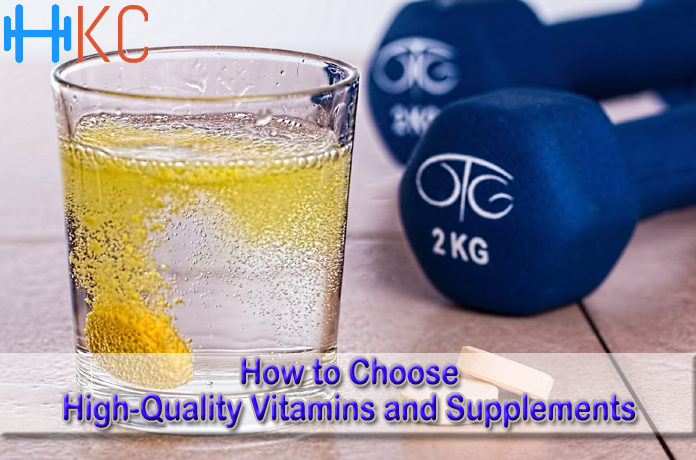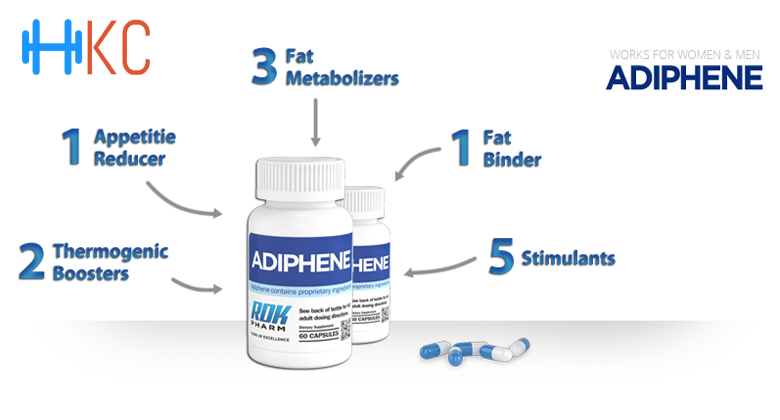There is a lot of he said, she said on the internet regarding using vitamins and supplements to improve your health. Ultimately, the quality of the vitamins impacts how effective they will be for you. The higher the quality, the better they will work.
While getting the majority of your vitamins and minerals from your diet is optimal, it’s not always feasible. So how can you ensure that you’re getting your money’s worth when it comes to vitamins? Here’s how to separate the highest-quality vitamins and supplements from the placebos.
How Vitamins and Supplements Help
Before you can determine which vitamins and supplements you want to use, you need to evaluate your end goal. Are you someone who struggles to eat fresh produce and want to ensure your immune system is in tip-top shape? Are you a vegetarian looking to supplement the nutrients you would otherwise get from meat? Or perhaps you’re a bodybuilder looking to increase your muscle mass. High-quality supplements and vitamins can help with all of these, as long as you’re taking the right ones.
Taking the time to understand your goals will help you research which type of supplementation you require. While almost everyone can benefit from a micronutrient boost, those who are more athletic or have a deficiency will have different requirements from the average person.
Look at What’s Included
When assessing vitamins and supplements, take a close look at the ingredient list to assess what the supplement consists of. Some supplements have more to offer than others. For example, the standard multivitamin that you purchase on the grocery store shelf will likely cover what the average, sedentary adult requires to get by. Alternatively, when choosing the highest quality vitamins and supplements available from a specialty shop, you’re more likely to get a wider range of phytonutrients, more B vitamins, etc.
In many cases, the more vitamins included in your supplement the better. However, not all supplements and vitamins are meant to be taken together, regardless of the quality. For example, calcium limits the absorption of iron. Thus, a vitamin that has both may not be as high quality as you think.
It’s also important to look at the ingredient list to assess how transparent the company is with their information. Companies who list “proprietary blend” rather than giving up the goods often have something to hide, and it isn’t always something good.
Look at the Doses
Lots of people who read food labels find the percentages given confusing. Do you really need 300% of your daily intake of Vitamin C? Why do some vitamins provide over the recommended daily rate of certain vitamins?
The percentages given on vitamins and nutrients are derived from the Recommended Daily Allowance (RDA), which is monitored by health regulations in many countries around the world. The RDA is based on the amount of a particular vitamin or nutrient required for someone to live optimally. However, what you require to be healthy might not be what your neighbor needs. The RDA is once again based on the average person who lives a sedentary lifestyle. The percentages act as a guideline rather than a rule.
High-quality vitamins and supplements will often have high doses of the vitamins and minerals they are promoting. A word of caution, however. Water-soluble vitamins, like Vitamin C and the B-Complex vitamins, when unused by the body, are excreted. That means you can’t overdose on these vitamins. Fat-soluble vitamins, on the other hand, such as Vitamins A, K, E, and D, are not processed the same and you can ingest too much, especially if you get a lot of these vitamins in your diet. Talk to your physician about what levels might be right for you.
Non-Medical Ingredients
When you take a vitamin or supplement, not everything you ingest is an integral aspect of the concoction. Some components are simply meant to hold everything together. While most of us focus on the medicinal ingredients, it’s important to look beyond those to assess the quality of a vitamin or supplement.
Be mindful of wheat fillers if you have a sensitivity. Look for the gluten-free label to ensure there isn’t any hidden wheat or wheat by-products in your supplement. Additionally, be on the lookout for artificial sweeteners, colors, and preservatives. If your vitamin or supplement has a lot of unnecessary ingredients, it could be of questionable quality.
Country of Origin
Contrary to popular belief, vitamins and supplements aren’t monitored as closely as food products or medication in many countries, even the USA. They often find themselves in a grey area between food and medication and can slip through the cracks of regulation. In some countries, there are no regulations at all, which is concerning when you are importing your supplements.
Check where the supplements and vitamins you’re purchasing are manufactured. Take some time to become familiar with a high-level overview of safety practices and regulations before purchasing supplements and vitamins online. There are many online suppliers who offer high-quality vitamins, but for every honest company, there are swindlers looking to take your money and run.
Bioavailability and efficacy refer to whether or not your body absorbs the vitamins and if they work. This is hard to assess without trying the vitamins and supplements, but there are a few key things to look out for. First and foremost, look at the composition of the supplement. Generally speaking, something in liquid or powdered form is going to be easier to absorb than a pill. That being said, there are lots of pills that work well, particularly if they don’t have a waxy coating to act as a shelf-stabilizer, as the coating blocks the breakdown during digestion.
To get a better idea of if the supplements work, read reviews from unbiased professionals and other users. Use websites like Examine.com and the National Institute of Health – Office of Dietary Supplements to read about how well the various supplements and vitamins on the market work.
Look at the Ingredient Types
Imagine you go to your doctor and find out that you need to take iron supplements. You get to the store and find that you’re faced with various bottles of iron, with different scientific names. Congratulations! You’ve just discovered the most confusing part of vitamins and supplements.
Iron Sulfate is often a cheaper option for supplementation, while Iron Glycinate is of higher quality and is more easily absorbed. Folic acid is commonly recommended during pregnancy to help offset the chances of Spina Bifida, but it’s more readily absorbed when it comes in the form of folate. Take some time to look at the various types of micronutrients that are covered by the umbrella of one common name when assessing the quality of your vitamins and supplements.
Third-Party Testing Labels
One sign of a high-quality vitamin or supplement is a label indicating that the product has been tested by a third party, rather than internally. This shows that the company has taken the time to invest in further testing to authenticate their claims. As supplements and vitamins often fall through the regulatory cracks, this can further verify that the product is not only effective but is what it says on the label.
Be sure to do a quick search on the organization listed as the third-party tester to ensure that it isn’t the same company under a different name. The NSF, Consumer Labs, and National Product Association are three well-respected labs.
When it comes to your health and wellness, you don’t want to mess around with products that don’t work, nor do you want to waste your hard-earned money. Take it upon yourself to research to find the highest-quality vitamins and supplements available.























